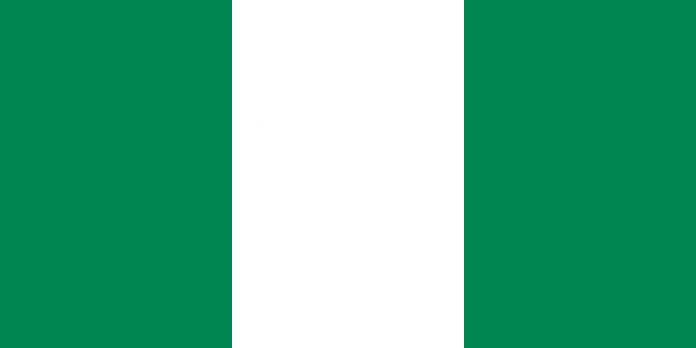Before the British imperialists came to Nigeria, the geographical space called Nigeria was occupied by many different ethnic groups that had their peculiar systems of government. While the emirate system of government thrived in the pure and impure Hausa states, the Obaship system of government reigned in Yoruba land.
In the South East of Nigeria, which is dominated by the Igbo people, the people practised republicanism which was rooted in gerontocracy. The White people who invaded Africa for political and economic reasons, carved up the continent into many nations, and introduced Western democracy to the people(s) of Africa.
Had they not brought democracy to us, perhaps, many different types of pre-colonial governments we had in Africa would have evolved to become ideal models of government today. However, democracy, which originated in Athens, Greece, is believed to be the best type of government. It is said that the worst type of democratic government is better than the most benevolent military regime.
That is why world leaders treat countries with military governments as pariah states. They are ostracised. Today, many countries in the world practise different variants of democratic governments, which suit their diverse cultural practices and peculiarities. Here, the seed of representative government was planted in Nigeria by the British overlords and watered by them.
So, after being under colonial rule for a considerable length of time, the White imperialists adjudged Nigeria qualified to become politically independent. When Nigeria attained self-rule in 1960, it was teeming with a galaxy of political stars. And there were morally upright intellectuals and political ideologues in their own right. They possessed both leadership qualities and vast knowledge in many areas of human specialisations with which they could have steered the country to the path of technological advancement and economic prosperity.
However, the departing British colonialists had other plans. They helped Alhaji Tafawa Balewa to become the Prime Minister of Nigeria at the expense of his intellectual and political betters such as Mokwugo Okoye, Nnamdi Azikiwe, Obafemi Awolowo, Anthony Enahoro, and others. Had either Awolowo or Azikiwe become the national leader of Nigeria in 1960, our country would have followed a trajectory different from its current one.
In order to realise their selfish interests, the British imperialists enthroned the Hausa/ Fulani hegemony in Nigeria and entrenched the culture of imposition of leaders on the populace. Alhaji Tafawa Balewa, Alhaji Shehu Shagari, Dr. Goodluck Jonathan, Alhaji Umaru Musa Yar’adua, and Chief Olusegun Obasanjo became our leaders at different times in our country based on our execrable culture of imposition of leaders on the citizens.
However, Dr. Jonathan became the president of Nigeria, fortuitously. When a country is led by a leader, who has deficit of leadership qualities, intellectual vacuity, and moral and spiritual aridity, that country will be doomed. It takes a great political leader, who is visionary, to remake a damaged country and set it on the path of true technological advancement and economic prosperity.
Aren’t we all familiar with the stories of Singapore’s rise to economic prosperity and the transformation of Malaysia? Mao Tse Tung and other Chinese political philosophers laid the ground work and ideological framework for the development of China. Can that be said about Nigeria? The answer is a categorical NO! We have never had a great national leader who possessed revolutionary zeal.
But Muhammadu Buhari evinced the traits and tendencies of a revolutionary and moral reformer. After suffering failed attempts at becoming the president of Nigeria, he finally won the presidential election in 2015. He was touted as the political messiah of Nigeria – the leader who would rescue Nigeria from economic ruin and technological backwardness.
But Buhari’s occupation of the most exalted political office in the land has led to his demystification. A man with messianic complex, he has failed abysmally in the task of fixing our country’s hydra-headed national problems. But, sadly, his aides and acolytes are not helping matters. They have continued to bury their heads in the sand regarding the dangerous and pitiable political situation in Nigeria today.
Today, bandits and Boko haram insurgents have become sovereigns in some towns in the North West of Nigeria, where the rule of guns has replaced the rule of law. They unleash terror on innocent people, killing them and taking others hostage in the process. Consequently, farmers who are displaced by insurgency have abandoned their farming occupation. Will their abandonment of farming not cause food shortage in Nigeria?
Again, the Boko Haram insurgents’ kidnapping of school children in the North has imperiled the future of education in the area. Even before the escalation of the crime of abduction in the area, the North has dismal record in education, what with millions of children of school ages not in school. Can Nigeria achieve national development, what with its parlous and comatose educational system as obtained in the North?
More so, in addition to the problems caused by bandits and Boko Haram insurgents, the resurgence of clamour for self-determination by some groups in the South West and the South East is unsettling and disquieting. It is an augury for trouble in the future. The deeds and utterances of Sunday Igboho, a Yoruba nationalist; Nnamdi Kanu, the IPOB leader; and Asari Dokubo are centrifugal forces polarising our country and taking it to the precipice of another civil war and disintegration.
Worse still, in the midst of all these vexatious national problems, our mono-economy is not in fine felt with the naira weak against foreign currencies and with millions of unemployed university graduates pounding the pavement daily. So, the question is this: Whither goeth Nigeria, the so-called giant of Africa?
Okoye, a poet, wrote from UruowuluObosi, Anambra state













